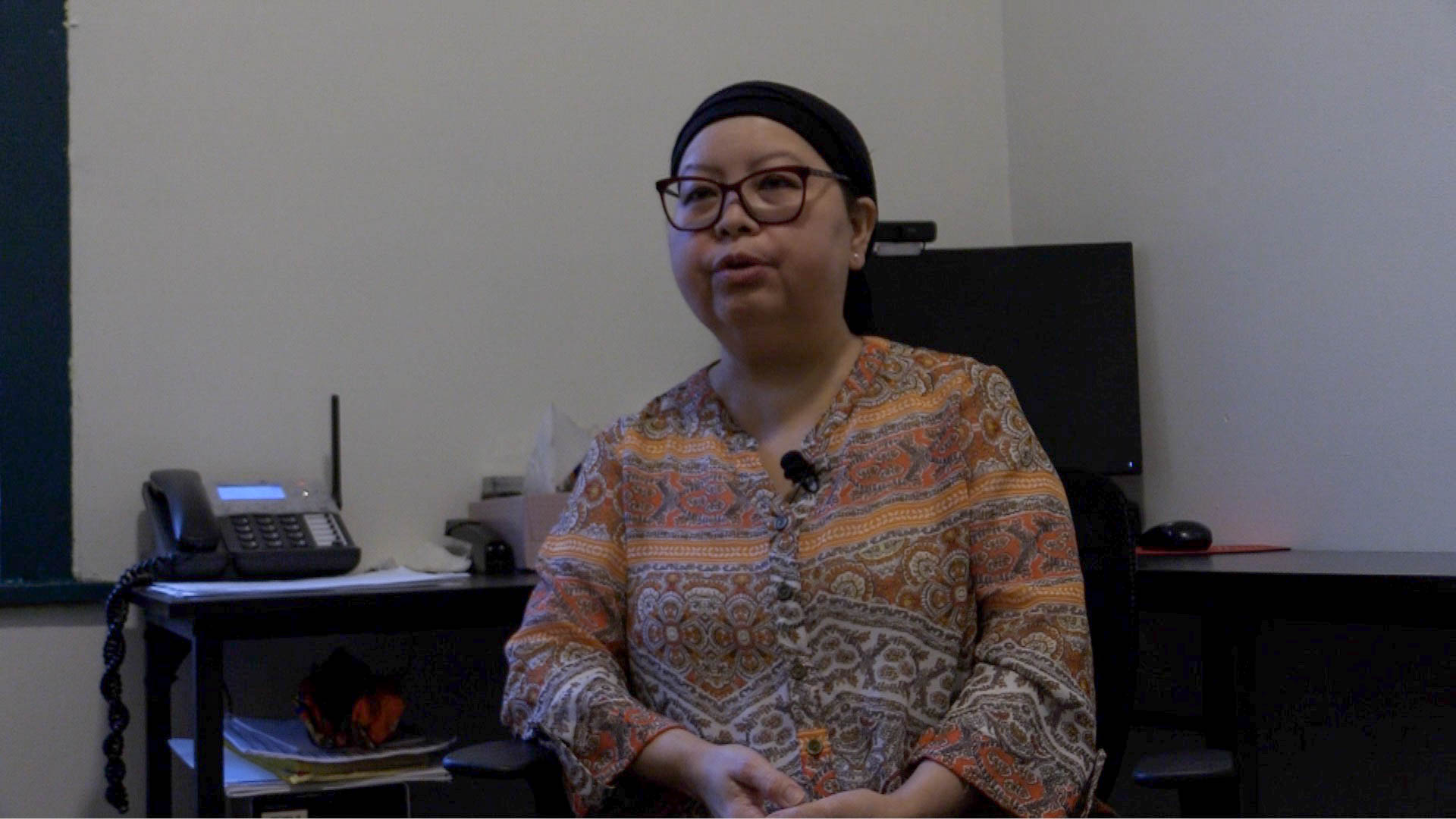
Pussy Riot attorney Mark Feygin addresses a crowd at NYU law school through translator Eliot Borenstein, a professor at NYU. Photo by Daniella Silva
The legal team for imprisoned members of the activist punk group Pussy Riot made their first U.S. appearance on Friday afternoon in a quickly organized panel at the New York University School of Law.
Several hundred students, professors, and activists gathered to hear the attorneys in a candid discussion about the plight of the Russian band members who were imprisoned after they gave a performance to protest the reelection of Russian president, Vladimir Putin. The team of lawyers, consisting of attorneys Violetta Volkova, Mark Feygin, Nikolai Polozov, and legal assistant Alissa Obraztsova, also addressed government corruption in Russia and civil rights.
“This is not a question of law—it is a question of political struggle,” Feygin told the crowd through a translator.
Three band members, Nadezhda Tolonnikova, Maria Alyokhina, and Yekaterina Samutsevich were sentenced to two years in prison for the crime “hooliganism driven by religious hatred” in August. According to the attorneys, the legal punishment for such an action is a fine, not imprisonment.
The young women staged a 40-second performance in Moscow’s main cathedral, the Church of Christ the Savior. The group sang, danced, and prostrated themselves before the church alter in what Riot members called “punk prayer.” The performance was later broadcast over the Internet, creating a global audience for their subsequent persecution.
“It’s really galvanized people,” said Suzanne Nossel, executive director of Amnesty International USA. “I think there’s something about this story that people can relate to—young women that have really paid a heavy price for expressing themselves and challenging a government that is really cracking down on these fundamental freedoms.”
“I think this is a theme that almost all countries are facing—where do you stand on the democratic framework,” said NYU law student Akila Ranalinga, 28.
The Pussy Riot legal team, as well as Pyotr Verzilov, husband of jailed band member Tolokonnikova, have used their time in the United States to continue raising international support for the imprisoned band members. The panel discussion comes a few hours after Verzilov accepted the LennonOno Grant for Peace award Friday morning at the Ace Hotel’s Liberty Hall.
“I told her that we were going to go to the United States and meet Yoko Ono and all these people,” said Verzilov to the crowd, referring to his wife, in English. “She’s like, ‘Yeah, I’m sitting in Moscow pre-trial detention center No. 6 and you get to go meet Yoko Ono. That’s cool.’”
“It was really a wonderful show of solidarity by Yoko Ono, in reaching out to Pussy Riot and other artists under threat,” said Nossel. “It’s sending a message to the Russian government that so many people from all walks of life have really rallied around this group.”
The group of lawyers, artists, activists and students discussed the significance of the band’s protest and persecution in a global context.
“There’s a discourse that goes on between artists and nations,” said Karen Finley, American performance artist. “It is a feminist act and we can relate to this here in America because of patriarchy.”
Finley opened the panel with a poem in honor of Pussy Riot that compared the young women to Georgia O’Keefe, Gertrude Stein, Mary Magdalene and other famous women throughout history.
“It’s just amazing to see this moment when people are paying attention to Russia not quite for the usual reasons,” said Eliot Borenstein, translator for the event and NYU professor. “It’s wonderful to see a reaction to a feminist moment in Russia when Russia has had so little place for anything feminist for decades.”
But Borenstein and others cautioned against quick comparisons of Pussy Riot to protest movements such as Occupy Wall Street.
“I never thought of them as addressing everybody, because if Occupy is trying to get everybody involved, Pussy Riot is in the avant-garde tradition of trying to shock people,” he said. “You don’t win hearts and minds this way.”
The legal team awaits an October 1st meeting in Moscow city court to “re-examine the constitutionality of the case,” said Feygin.
“The violation of human rights is obvious, you don’t have to be an attorney to see that,” he said.

Comments
[…] https://pavementpieces.com/legal-panel-discusses-the-plight-of-pussy-riot/ […]